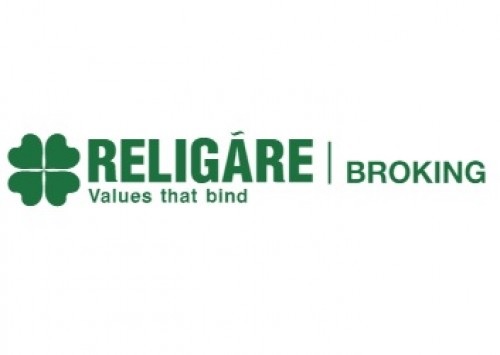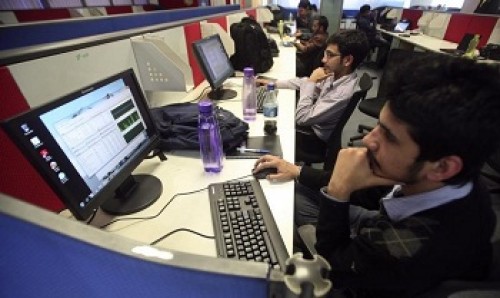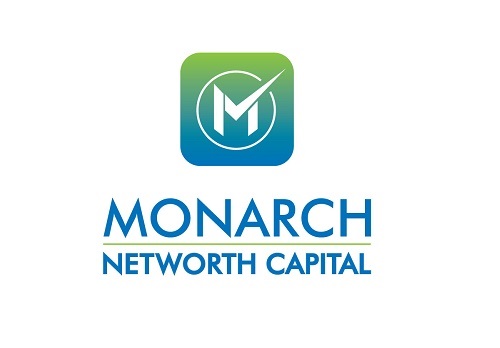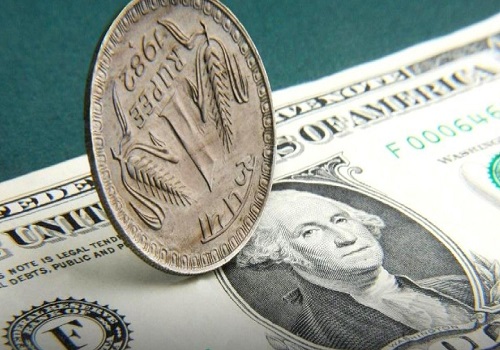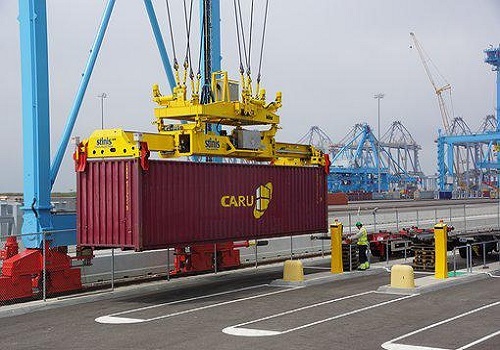Sensex, Nifty end at record closing high

Follow us Now on Telegram ! Get daily 10 - 12 important updates on Business, Finance and Investment. Join our Telegram Channel
Indian equity benchmarks ended at record highs on Thursday after showing lacklustre trend in the previous two sessions, as firm global cues, a consistent fall in daily Covid-19 cases, and a stronger rupee kept market mood upbeat. The benchmarks staged a gap up opening, as traders took support with Minister of State for Finance Anurag Thakur’s statement that Indian economy is resilient and will rebound in the times ahead based on consistent reforms that have ensured strong fundamentals through these difficult times. Thakur has pointed out that consistent reforms and strong fundamentals have ensured that India had a swift rebound from a contraction of 24.4 percent in the first quarter to a growth of 1.6 percent in the fourth quarter of FY 2020-21. Benchmarks cut some of their gains during afternoon session after the survey report indicated that India’s service sector fell into contraction territory in the month of May, with the intensification of the COVID-19 crisis causing renewed declines in new business and output. As per the survey report, the seasonally adjusted Nikkei Services Business Activity Index fell to 46.4 in May from 54.0 in April. Further, the Nikkei India Composite PMI Output Index -- which measures both manufacturing and services - also eased to 48.1 in May from 55.4 in April.
However, key gauges regained traction, taking support from Credit ratings agency Crisil in its latest report stated that the expanded Emergency Credit Line Guarantee Scheme (ECLGS) will help businesses like hotels, civil aviation and tour operators, which are the hardest hit by the second wave of COVID-19. It will also support build-up of healthcare infrastructure, mainly oxygen availability, in tier-2 and beyond cities and the hinterland. Traders took a note of Assocham’s report in which it has recommended the government to extend relief measures such as regulatory easing, wage support, and interest subsidy for the Micro Small and Medium Enterprises (MSMEs) which are reeling under the severe impact of COVID-19. As the states are in the process of easing lockdowns, it said the trade and industry would need all-around support to pick up their business thread again. Investors also eyed the Reserve Bank of India's meeting on Friday where it is expected to keep its key rate at a record low but reaffirm its commitment to provide adequate liquidity as the country grapples with a deadly second wave of the COVID-19 pandemic.
On the global front, Asian markets ended mostly higher on Thursday following the positive cues overnight from Wall Street, on higher crude oil prices and continued economic optimism as the country continues to reopen following increased Covid-19 vaccination rates and relaxed social distancing measures. However, investors adopted a cautious approach ahead of the monthly U.S. jobs report scheduled for release on Friday, which could offer cues on the economic recovery and the interest rate outlook. European markets were trading lower, as Markit's Eurozone services PMI coming in at 55.2 in May, up from 50.5 in April and the highest level in almost three years. The final composite Purchasing Managers' Index (PMI) jumped to 57.1 last month from April's 53.8. Back home, on the sectoral front, banking stocks were in focus as S&P stated that the second Covid wave may push credit costs of the Indian banking system to 2.4 per cent by March 2022, compared to base case of 2.2 per cent. Sugar stocks were in limelight after the government brought forward the target date for achieving 20 per cent ethanol-blending with petrol by two years to 2023 to help reduce India's dependence on costly oil imports.
Finally, the BSE Sensex rose 382.95 points or 0.74% to 52,232.43, while the CNX Nifty was up by 114.15 points or 0.73% to 15,690.35.
The BSE Sensex touched high and low of 52,273.23 and 51,942.20, respectively and there were 21 stocks advancing against 9 stocks declining on the index.
The broader indices ended in green; the BSE Mid cap index rose 1.04%, while Small cap index was up by 1.04%.
The top gaining sectoral indices on the BSE were Consumer Durables up by 4.44%, Realty up by 3.95%, Capital Goods up by 1.46% and Industrials up by 1.43%, Consumer discretionary up by 1.38%, while there were no losers on the BSE sectoral front.
The top gainers on the Sensex were Titan Company up by 6.69%, ONGC up by 4.16%, Larsen & Toubro up by 2.64%, Axis Bank up by 1.82% and Kotak Mahindra Bank up by 1.80%. On the flip side, Indusind Bank down by 2.15%, Power Grid down by 0.68%, Bajaj Auto down by 0.51%, Mahindra & Mahindra down by 0.51% and Dr. Reddys Lab down by 0.50% were the top losers.
Meanwhile, Standard and Poor (S&P), in its report Intervention Worked: Credit Losses Set To Decline For Most Asia-Pacific Banks, has said that the second Covid wave may push credit costs of the Indian banking system to 2.4 per cent by March 2022, compared to base case of 2.2 per cent. The pandemic may stall a strong recovery in the economy and credit conditions.
In a severe downside scenario, the Indian banking system’s weak loans should rise to about 12 per cent of gross loans. It may thwart banking system profitability. In India and Indonesia, banks have suffered higher asset distress in recent years. The credit losses are set to trend closer to our expected long-term average in the coming years.
It mentioned the credit losses will remain well below expected long-term average in most countries (in Asia-Pacific) despite last year’s economic hardship. Sturdy provisioning so far during the health crisis helps. In addition, the region’s banking asset stress was at historical low levels just before the pandemic struck.
The CNX Nifty traded in a range of 15,705.10 and 15,611.00 and there were 35 stocks advancing against 14 stocks declining, while 1 stock remain unchanged on the index.
The top gainers on Nifty were Titan Company up by 6.83%, ONGC up by 5.01%, Eicher Motors up by 3.37%, Larsen & Toubro up by 2.78% and Axis Bank up by 2.07%. On the flip side, Indusind Bank down by 2.15%, Wipro down by 0.74%, Dr. Reddys Lab down by 0.61%, Tata Steel down by 0.58% and Bajaj Auto down by 0.56% were the top losers.
European markets were trading lower; UK’s FTSE 100 decreased 56.97 points or 0.8% to 7,051.03, France’s CAC fell 17.18 points or 0.26% to 6,504.34 and Germany’s DAX declined 57.39 points or 0.37% to 15,545.32.
Asian markets ended mostly higher on Thursday, even as investors are cautious ahead of the monthly US jobs report due on Friday that could offer cues on the US economic recovery and near-term Federal Reserve policy action. Meanwhile, the Fed's Beige Book survey showed that the US economic growth increased at a ‘moderate pace’ from early April to late May, and the overall price pressure further increased. Japanese shares ended higher, boosted up by optimism over the nation's vaccine rollout. However, Chinese shares dropped after a private survey showed that Chinese services activity growth slowed in May. The Caixin/ Markit services Purchasing Managers’ Index for May came in at 55.1, down from 56.3 in April.
Above views are of the author and not of the website kindly read disclaimer
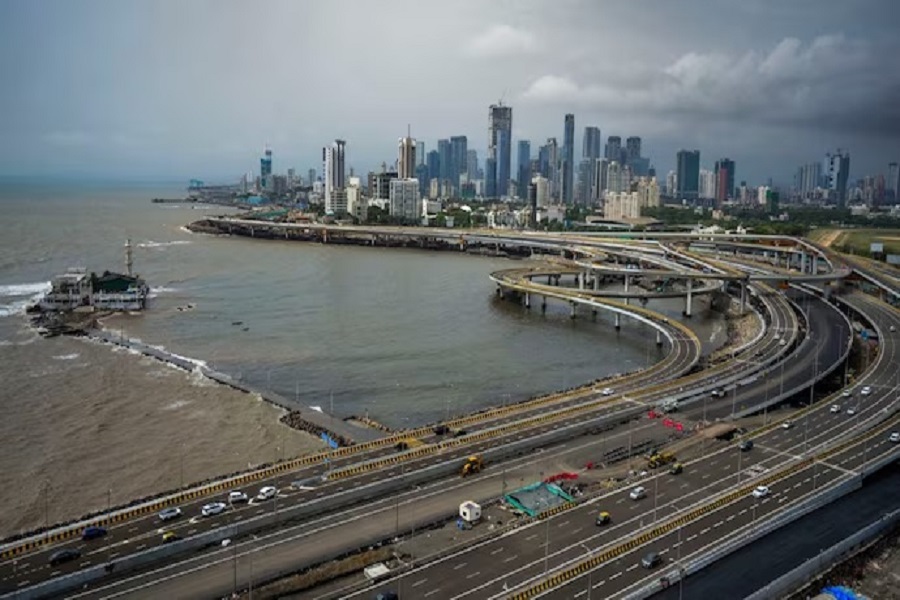

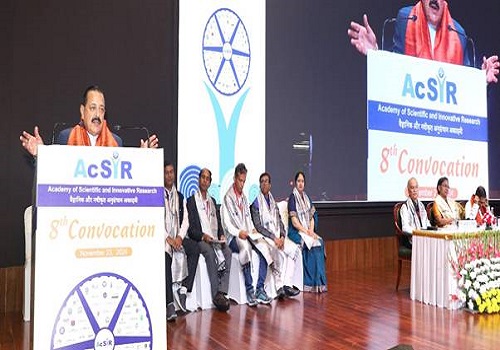



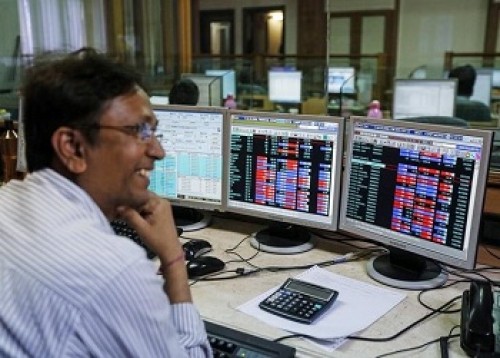

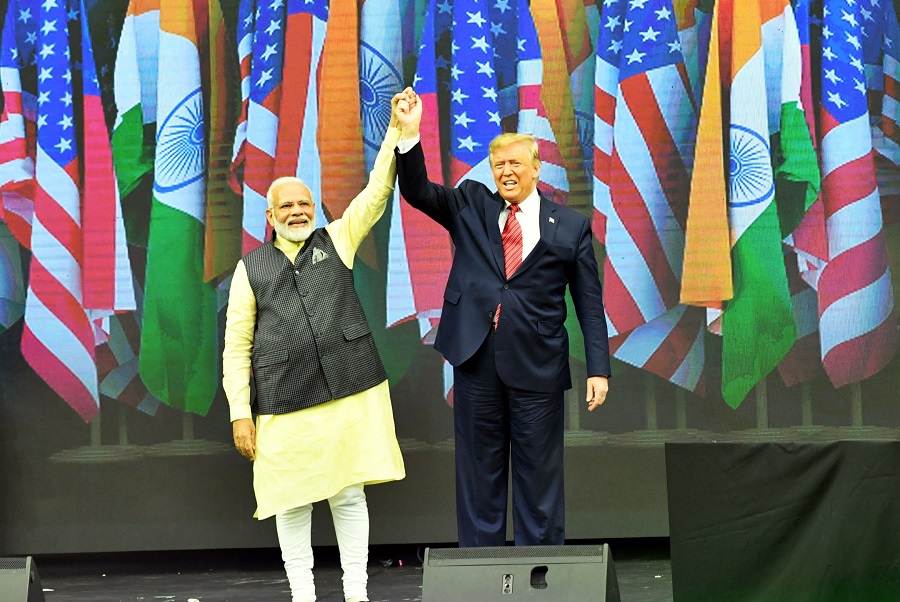

Tag News

Weekly Market Analysis : Markets strengthened recovery and gained nearly 2% in the passing w...



More News
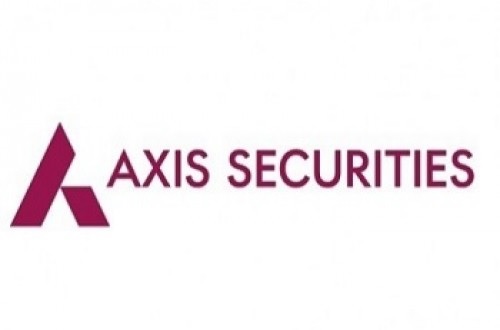
Nifty opened with an upward gap but and buying momentum for most of the session led index to...
